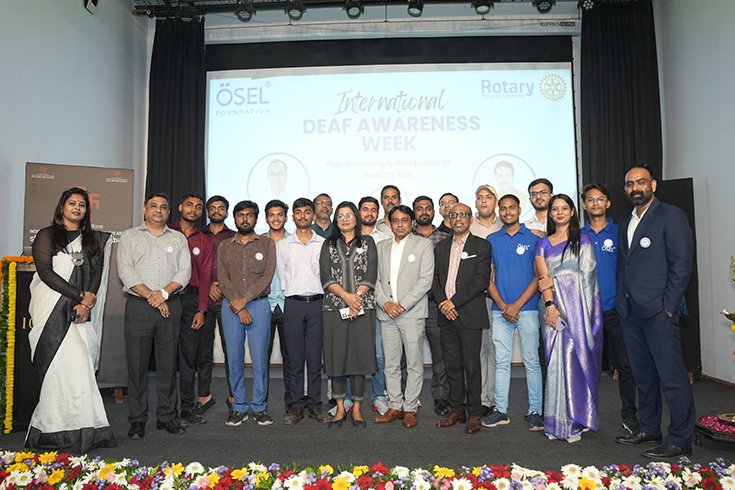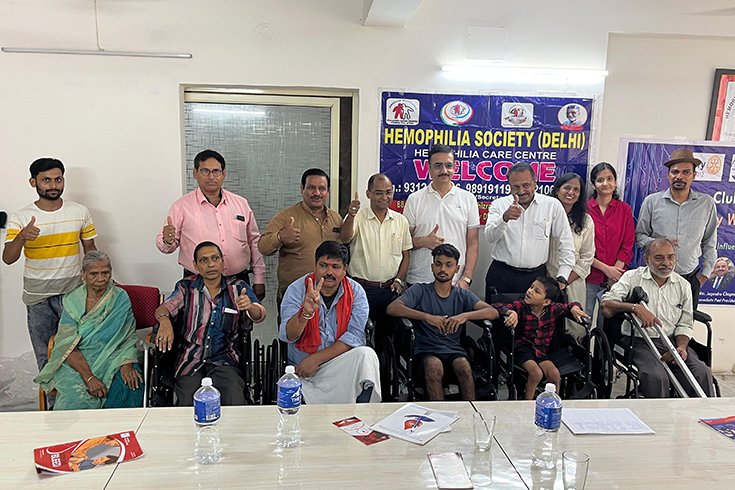India’s
healthcare system faces structural challenges, including overworked medical
staff and insufficient healthcare access, especially in rural areas.
Health-tech startups are now deploying cutting-edge technology like artificial
intelligence (AI) to address these chronic gaps. Inspired by personal
experiences and innovative backgrounds, entrepreneurs like Mudit
Dandwate are leading these efforts to reshape healthcare in the
world’s most populous country.
Dandwate, a
former consultant for race car manufacturers like McLaren, co-founded Dozee in
Bengaluru in 2015. His journey into health-tech began after nearly losing an
uncle to undiagnosed sepsis in an Indian hospital. Drawing on his knowledge of
Formula 1 sensors that monitor micro-vibrations, Dandwate developed a contactless
patient monitoring system that detects vital signs such as heart rate,
respiration, and sleep patterns through sensor sheets placed under mattresses.
These sensors offer 98% accuracy, helping hospitals improve real-time patient
care while easing the burden on their staff.
Dozee’s
services come at a high cost—over ₹5,00,000 ($5,947) for integration into
hospital systems. The company has already partnered with more than 250
hospitals in India and 55 in the US, managing over 16,000 beds. With $35
million in raised capital, Dozee plans to secure more funding in the next six
months to expand operations further, especially in the US market.
The growing
need for innovative solutions in India stems from a severe shortage of medical
professionals. The World Health Organization (WHO) reports
that India has only 7.3 physicians per 10,000 people, far below the
global average of 17.2. This scarcity is more pronounced for specialists,
especially in rural areas, where the shortfall reaches 80%. Health-tech
startups aim to mitigate this issue by optimizing the use of existing
resources.
CloudPhysician, founded by former Cleveland Clinic
intensivists Dhruv Joshi and Dileep Raman, offers remote ICU monitoring
services. Operating from Bengaluru, the company’s 120-member team monitors
ICUs across 23 states in India, from urban centers like Mumbai to smaller
cities like Deoghar in Jharkhand. CloudPhysician recently raised $10.5
million to enhance its operations.
One of
CloudPhysician's key collaborators is Paramount Hospital, a 40-bed
medical facility located in northern Mumbai. Due to limited resources,
Paramount previously referred critical patients to other facilities with better
monitoring capabilities. However, the partnership with CloudPhysician has
enabled the hospital to retain more critical cases, with average ICU stays
reduced from five days to three.
The COVID-19
pandemic accelerated the demand for remote healthcare services, leading to the
rise of companies like PharmEasy. However, many startups that
thrived during the pandemic have since struggled to maintain valuations as the
global economy shifts back toward hybrid healthcare models. While at
least 170 Indian health-tech startups have shut down since
2023, firms focusing on sustainable, technology-backed solutions continue to
attract investors.
Despite the
challenges, there is significant investor interest in India’s health-tech
sector. Firms like TPG Capital and pharmaceutical giants such
as Novo Nordisk have invested $3.7 billion into
Indian health-related startups since 2022. Bain & Co. projects the Indian
healthcare innovation market will grow into a $60 billion opportunity
by 2028, led by pharmaceutical services and health-tech ventures.
AI-powered
startups are also addressing specialized healthcare needs. Qure.ai,
for instance, raised $65 million in 2024 and leverages AI to
detect early signs of conditions like stroke and lung cancer. Similarly, Asia
Healthcare Holdings, backed by TPG, has extended neonatal ICU services to
remote areas, treating over 1,300 infants in smaller towns through telemedicine
solutions.
Startups
like Dozee and CloudPhysician are also expanding internationally to tap into
higher-paying markets in the US and the Middle East while keeping their
services affordable in India. "Technology allows us to deliver
services profitably while keeping them affordable for customers," said
Mohit Bhatnagar, managing director of Peak XV Partners.. Founders believe that
as India’s middle class and internet penetration grow, the customer base for
digital health services will also expand.
Ultimately,
these startups are building advanced technologies to compete globally while
addressing India’s healthcare gaps. “You build such strong
technology that you compete in the global marketplace,” said Ashwin Raguraman,
co-founder of Bharat Innovation Fund. This dual approach is critical to driving
profitability while enhancing healthcare outcomes in underserved regions.












